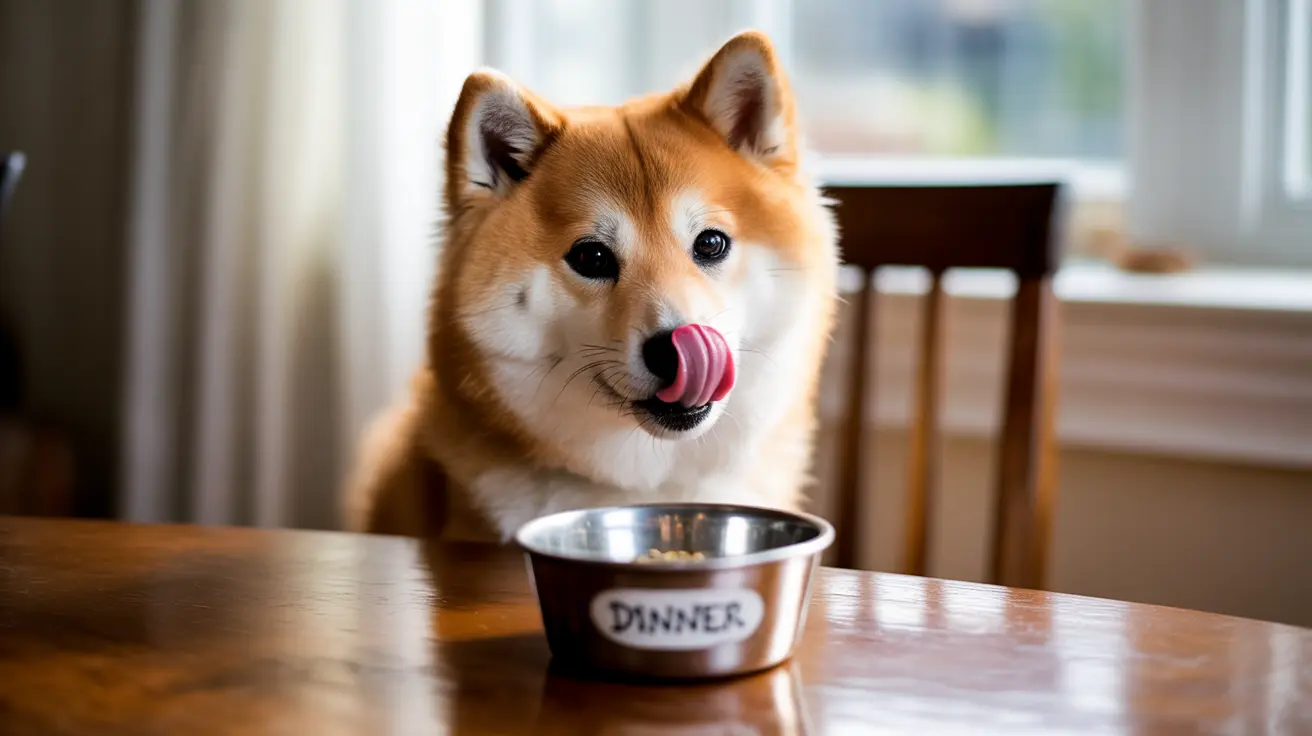If you've noticed your dog keeps licking his lips frequently, you might be wondering what's causing this behavior. While occasional lip licking is normal, excessive or persistent lip licking can signal various underlying issues, from simple hunger to more serious medical conditions. Let's explore the different reasons behind this common canine behavior and when you should be concerned.
Common Reasons Why Dogs Lick Their Lips
Natural Behavioral Causes
Dogs often lick their lips as part of their normal behavior. This includes anticipating food, responding to interesting smells, or as part of their grooming routine. It's also a natural response when they've just finished eating or drinking.
Stress and Anxiety Signals
Lip licking serves as a calming signal in dogs. When your dog is feeling anxious, uncomfortable, or stressed, they may lick their lips repeatedly. This behavior often appears in situations like visits to the vet, during thunderstorms, or when facing unfamiliar situations.
Medical Reasons for Excessive Lip Licking
Dental and Oral Issues
Dental problems are a common cause of persistent lip licking. These can include tooth decay, gum disease, oral injuries, or objects stuck in the mouth. If your dog keeps licking his lips and shows signs of discomfort while eating, it's time for a dental check-up.
Gastrointestinal Problems
Nausea, acid reflux, and other digestive issues can trigger increased lip licking. Dogs may also lick their lips more frequently before vomiting or when experiencing stomach discomfort.
Other Health Concerns
- Allergies or skin irritations
- Dehydration
- Neurological issues
- Mouth injuries or ulcers
- Salivary gland problems
When to Seek Veterinary Care
If your dog's lip licking becomes excessive or is accompanied by other symptoms, it's important to consult a veterinarian. Watch for:
- Changes in eating or drinking habits
- Bad breath or drooling
- Pawing at the face
- Lethargy or unusual behavior
- Visible mouth abnormalities
Prevention and Management Tips
To help prevent problematic lip licking:
- Maintain regular dental care
- Ensure proper hydration
- Manage stress and anxiety
- Keep harmful substances out of reach
- Schedule regular veterinary check-ups
Frequently Asked Questions
Why does my dog keep licking his lips even when he's not hungry?
Dogs may lick their lips when not hungry due to stress, anxiety, nausea, dental problems, or as a response to unfamiliar situations. It's important to observe the context and any accompanying symptoms to determine the cause.
Could my dog's lip licking be a sign of dental problems or oral pain?
Yes, excessive lip licking can indicate dental issues or oral pain. Look for other signs like bad breath, difficulty eating, or reluctance to have their mouth touched. A veterinary dental examination can identify and address any oral health problems.
How can I tell if my dog's lip licking is due to stress or anxiety?
Stress-related lip licking often occurs in specific situations and may be accompanied by other anxiety signs like yawning, panting, trembling, or avoiding eye contact. Consider the environment and circumstances when the behavior occurs.
When should I worry and take my dog to the vet for excessive lip licking?
Consult a veterinarian if lip licking is persistent, excessive, or accompanied by changes in eating habits, drooling, pawing at the face, or other unusual symptoms. Immediate care is needed if you suspect your dog has ingested something harmful or shows signs of severe distress.
What are common medical causes behind persistent lip licking in dogs?
Common medical causes include dental disease, nausea, acid reflux, allergies, oral injuries, foreign objects in the mouth, and neurological issues. A thorough veterinary examination can determine the underlying cause and appropriate treatment.
By understanding why your dog keeps licking his lips and recognizing when this behavior might signal a problem, you can better ensure your pet's health and well-being. Remember that while some lip licking is normal, persistent or unusual licking patterns warrant attention and possibly veterinary care.






